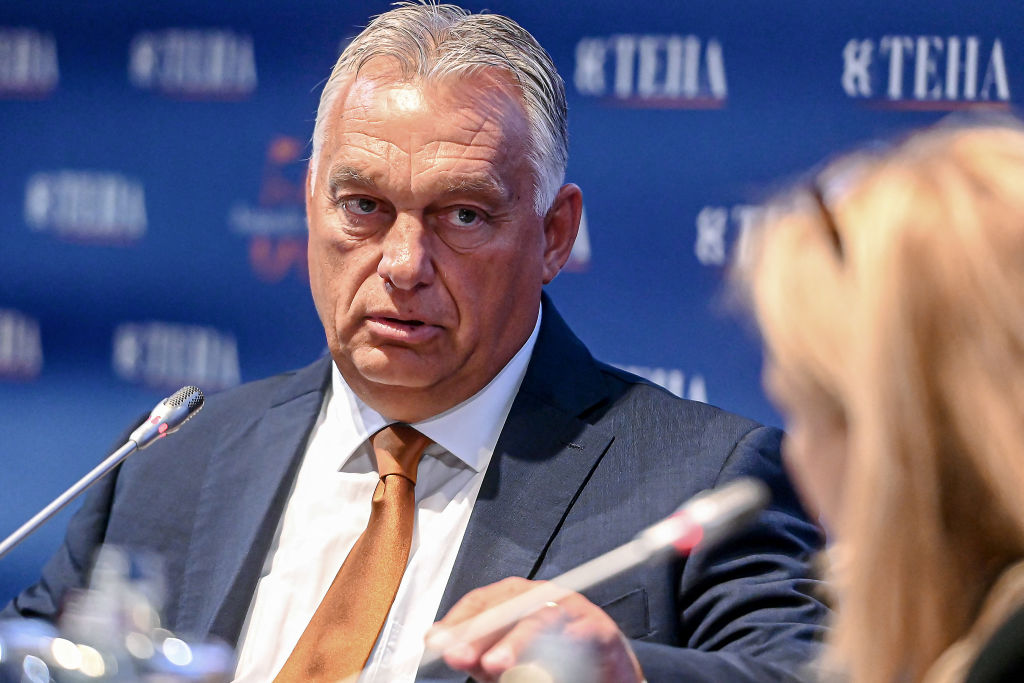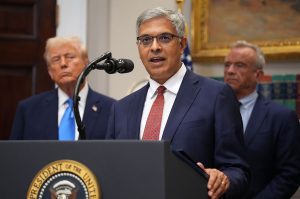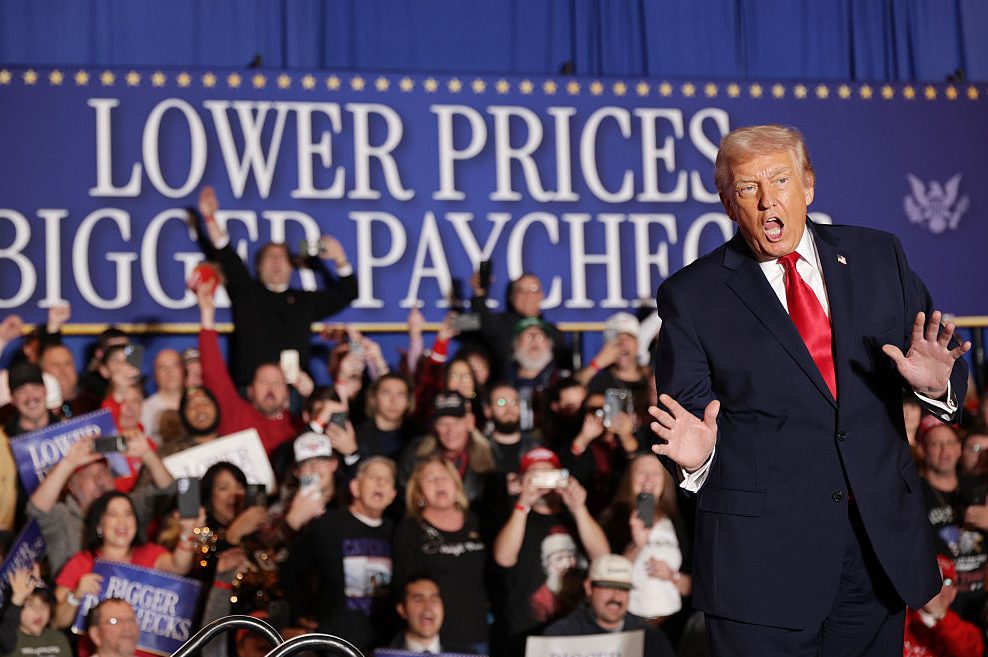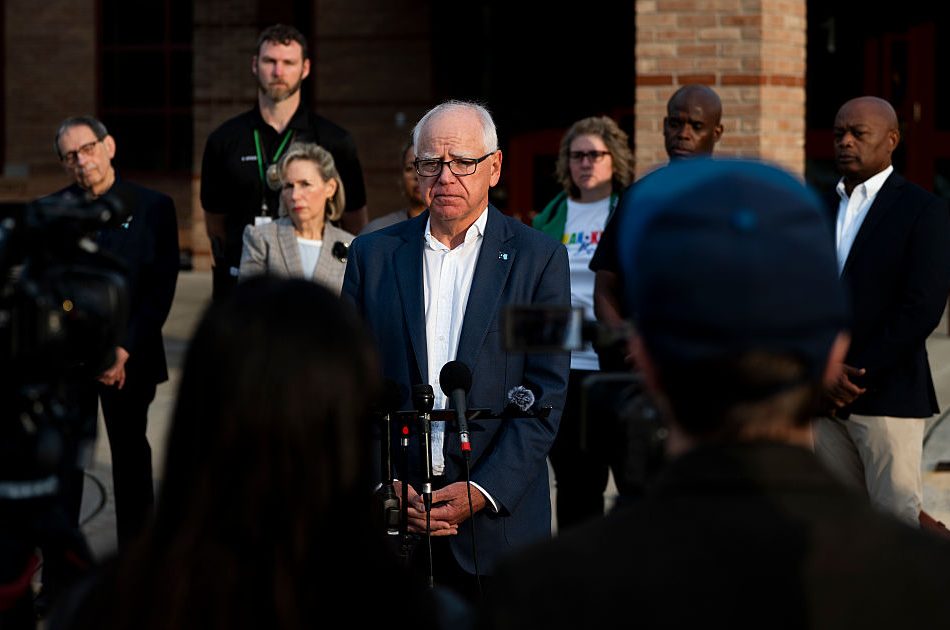Over the headline “Peace Mission,” a recent cover from the conservative Hungarian periodical Mandiner shows an awkwardly photoshopped Viktor Orbán mediating between a bemused-looking Vladimir Putin and a grim Volodymyr Zelensky. Behind Orbán, a map of the world connects Kyiv, Moscow, Beijing, Washington and Budapest. One of these capitals, as they say, is not like the others.
Even before Ukraine’s Kursk offensive, the chances of Orbán’s July trips to Kyiv and Moscow producing a peace settlement were slim. The Mandiner cover, however, is a revealing window into the mindset of Orbán’s conservative fans. The idea of a Hungarian prime minister mediating between squabbling great powers is both attractive and plausible to many of Orbán’s fervent supporters.
It’s also a mirror image of the diabolical role Orbán plays in the liberal imagination, where he is routinely mentioned alongside a rogue’s gallery of international outlaws, Putin included. For Hungarians, foreign admirers and leftist critics, Orbán enjoys an outsized presence on the international stage. Few stop to wonder why the prime minister of a small and strategically inconsequential state might have such standing among friends and enemies alike.
To say Hungary is not a major power is no insult; it’s a statement of fact. Orbán leads a modest Central European country of 10 million people that lacks strategic resources or a large military. Hungary faces declining birth rates, a steady stream of young people leaving to seek their fortunes abroad and an economy still wheezing from the successive shocks of Covid and the war in Ukraine. In the past few decades, the Visegrád Group — Czechia, Slovakia, Poland and Hungary — amplified Orbán’s voice on the international stage. The Russian invasion of Ukraine has dramatically fractured this alliance, especially between dovish Hungary and hawkish Poland.
Despite these obvious limitations, Orbán enjoys a level of international celebrity usually reserved for the leaders of major powers. On the right, he has become a hero to European populists and a model for a subset of American conservatives who look to emulate his political staying power. He has also become one of the left’s favorite villains, the rare NATO head of state to be labeled an authoritarian by President Joe Biden.
Orbán is a talented politician, but his international profile is fundamentally out of whack with Hungary’s modest geopolitical footprint. In truth, the Hungarian prime minister owes his global fame to the skittishness of Europe’s old center-right, which was always wary of embracing the same issues that have made the Hungarian PM a global celebrity.
The late career swoon of Angela Merkel, a hate figure to many conservatives for her decision to open Germany’s (and, by extension, Europe’s) doors to immigration in 2015, is a case in point. Despite her canonization in the Atlanticist press as the anti-Donald Trump, Merkel became German chancellor as leader of the center-right Christian Democrats. When Merkel embraced immigration, she temporarily took the issue off the table for Germany’s leading political parties.
Other center-right parties across Europe were also reluctant to adopt restrictive immigration policies, with predictable results. In the UK, the Brexit vote was widely seen as a rebuke to open borders, but the total number of new arrivals actually increased under the confused era of Tory leadership that followed. In France, support for the center-right Républicains collapsed in the mid-2010s in part because the ossified Gaullist establishment was unable to respond to anti-immigrant sentiment.
Enter Orbán, who combined hardline border control policies with combative rhetoric about defending Hungarian sovereignty and Western civilization. Becoming the favorite target of op-ed columnists, fellow heads of state, and EU functionaries only contributed to the wider impression that Orbán was the only European leader willing to oppose mass migration.
The war in Ukraine provided Orbán with another opportunity to stand out from the crowd. Russia’s invasion provoked universal condemnation from Europe’s political class, but below the surface, many voters resented the resulting sudden increase in energy prices and were less sympathetic to the Ukrainian cause than their leaders. Once again, Orbán’s lonely stand against arming Ukraine elevated his stature at exactly the right moment.
Indeed, Orbán’s canny opportunism may explain his close relationship to Donald Trump, whose own political career bears many of the same hallmarks. Like Orbán, Trump capitalized on a range of issues, from border control to skepticism of free trade to distrust of America’s expansive global commitments, where Republican voters’ preferences often diverged from their leaders’.
Orbán is no longer a political loner. From Alternative for Germany (AfD) to the National Rally in France, a new generation of European conservatives now echoes his views on immigration and, to a lesser extent, foreign policy. Younger right-wing leaders like Jordan Bardella in France and Giorgia Meloni in Italy have clearly learned from the Orbán playbook. While these developments may vindicate the Hungarian PM’s political instincts, they also spell the end of his elevated international role.
This is not to say that Orbán’s political career is over. The next Hungarian national elections are scheduled for 2026, and another Orbán win will surely provoke howls of protests from his critics and cheers from his supporters on the global right. Now that Orbán’s views have been adopted by a rising generation of European conservatives, however, the era of a Hungarian prime minister wielding outsized influence on the global stage is rapidly drawing to a close.
This article was originally published in The Spectator’s October 2024 World edition.


























Leave a Reply